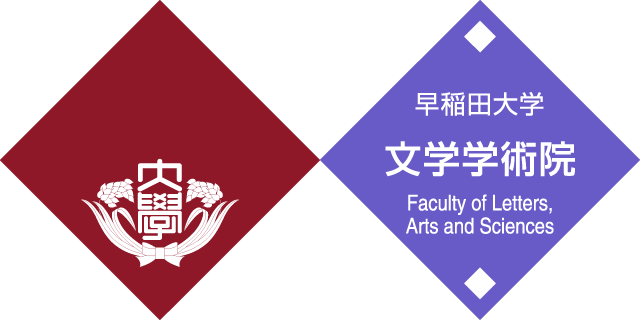- Student Report
- Sena Kaneko Cultural Sciences Japanese Studies Graduate School of Letters, Arts and Sciences
Sena Kaneko Cultural Sciences Japanese Studies Graduate School of Letters, Arts and Sciences

- Posted
- Tue, 17 Jan 2023
The Tadashi Yanai Initiative for Globalizing Japanese Humanities
UCLA-Waseda Research Fellowship Program Report
Sena Kaneko
2nd year student, Doctoral Program
Cultural Sciences Japanese Studies, Graduate School of Letters, Arts and Sciences
Through the Tadashi Yanai Initiative Global Japan Humanities Project, I was able to spend three months as a Visiting Graduate Researcher at the Department of Asian Languages and Cultures at UCLA (September to December 2022, Fall Quarter). This experience has provided me with an invaluable opportunity to reflect on my position as a researcher, as well as to connect with graduate students at UCLA and search materials unavailable in Japan.
During my stay at UCLA, the majority of my time has been spent attending classes and collecting research-related materials. I attended a seminar on Modern Southeast Asian Literature, which is rarely offered at Japanese universities. Although Filipino authors are of particular interest to me, this course exposed me to a wide range of novels written not just by Filipinos but also by other Southeast Asian authors. My focus on the topos of the “Philippines” in modern and contemporary Japanese literature thus far has limited the scope of my research to the interrelationships between Japan and the Philippines, as well as between the Philippines and its former suzerains, Spain and the U.S.; this class, however, made me realized that I had overlooked a vibrant literary network in Southeast Asia. Thanks to Professor Michael Emmerich, who introduced me to Professor George Dutton in the field of Southeast Asian Studies, I was permitted to attend the class even though the seminar was not under Japanese Studies. A fascinating aspect of this program is that Yanai scholars can participate in nearly any class regardless of their affiliations. In addition, I attended a seminar on early modern Japanese literature and performing arts led by Professor Satoko Shimazaki. In this seminar, around ten graduate students in Japanese Studies met each week to discuss course readings. Their diverse backgrounds and research interests provided for intellectually stimulating and rich conversations in which a wide variety of viewpoints and ideas were shared.
Regarding my own research, Ms. Tomoko Bialock, the Japanese specialist librarian, has given me numerous pertinent recommendations; as a result, I was able to access many materials that were unavailable in Japan. For instance, the UCLA Special Collections and other libraries in the U.S. hold documents relating to my research, including magazines published locally during the Japanese occupation and diaries written by Americans and Filipinos in the Philippines in the late 19th and early 20th centuries. In the future, I would like to further develop my research by utilizing these materials. Along with my research advancements, I also had the opportunity to participate in a panel with graduate students from UCLA, and I will present my research at an international conference (ASCJ) in July 2023. I am thrilled to have established a network with international researchers of the same generation, and I believe this network will prove to be an invaluable resource.
During my time at UCLA, I was introduced to wholly novel scholarly approaches to Japanese Studies, in which Japan is regarded as a distinct region—one of the “others”—observed and studied from the perspective of an outsider, as opposed to how I would normally approach my own study as a Japanese Studies scholar who identifies as a Japanese national. In the meantime, such an exposure to research on Japan from a different perspective prompted me to reflect on my own research by reminding me of the risk of my research imposing certain images onto the Philippines and reproduces Orientalism unwittingly. Therefore, the most significant benefit of this study trip was that it allowed me to reconsider how my research has been shaped by my own presumptions and positions as a Japanese researcher by re-examining “Japanese Studies” within the framework of “Area Studies.” I am convinced that my stay at UCLA enabled me to gain insights into the field of Japanese Studies by placing Japan and Japanese Studies within a dynamic global network of scholarship on Japan that continually questions conventional assumptions and what has been taken for granted.
Lastly, I would like to express my sincere gratitude to Professor Michael Emmerich, the entire staff at Waseda University and UCLA, and the UCLA graduate students for their support in various ways during my stay.
